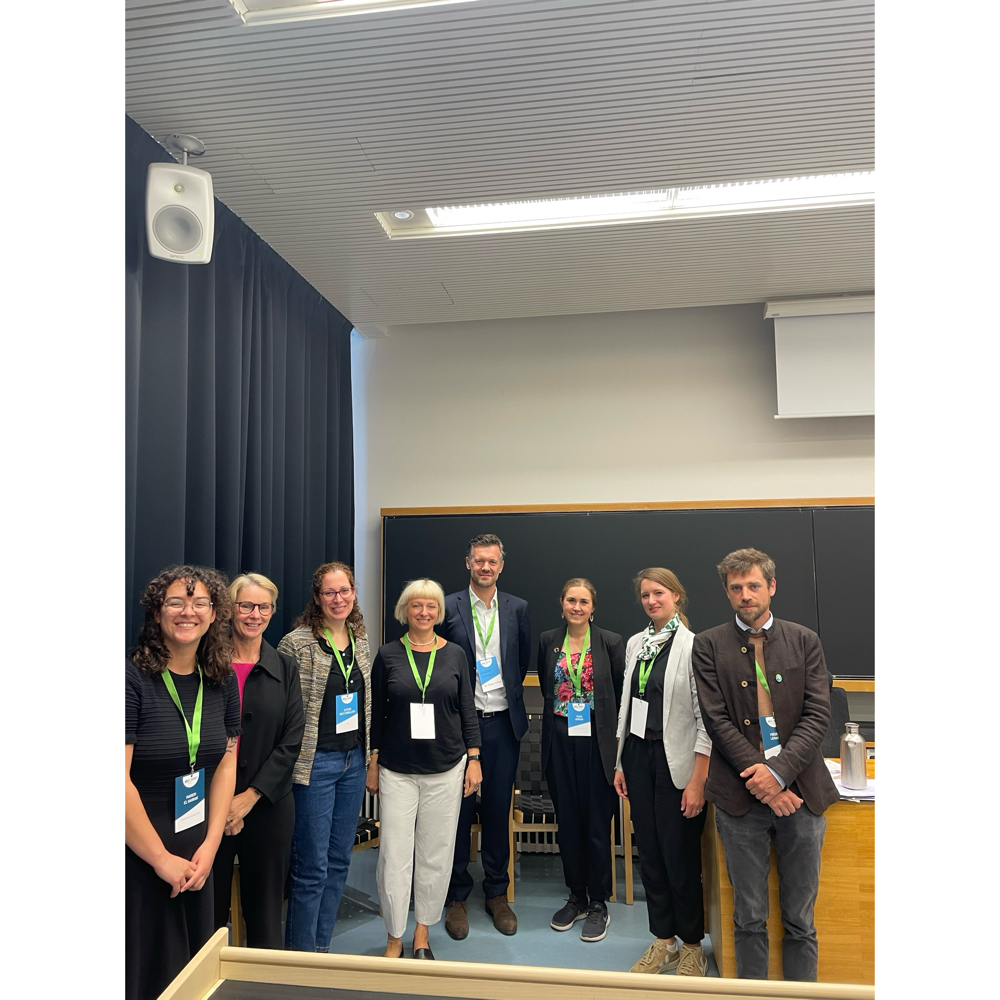
NetworkNature is known for its clustering work, and it fulfilled this role at the June SRI Congress where representatives facilitated a roundtable “Horizon Europe Partnerships’ Dialogue: Nature-based Solutions for Urban, Water and Marine Ecosystems and Biodiversity.”
The event opened a dialogue between four European partnerships - Water4All, Sustainable Blue Economy Partnership, Biodiversa+ and Driving Urban Transitions (DUT) – each offering complementary perspectives towards NbS and their strategies for embedding NbS into their operational frameworks. On one side, DUT highlighted NbS as essential for addressing urban challenges and fostering connections between people and places. The Blue Economy Partnership also emphasised the socio-economic dimensions of NbS, underscoring their importance for improving the resilience of coastal communities and fostering synergies across land-sea connectivity. On another side, Water4All discussed the integral role of NbS in their agenda for protecting and restoring ecosystems and contributing to climate change resilience. Finally, Biodiversa+ focused on the biodiversity components of NbS, exploring how biodiversity influences the performance of NbS, assessing their direct and indirect impacts on biodiversity outcomes, and evaluating their transformative potential.
Insights from three NbS European projects enriched the discussion. Gerardo Gonzales showcased the ecological, economic and social successes of the bio-enhanced concrete initiative developed by the Living Port project based in Vigo (Spain). Tessa Armour, from the Nature-wise Espoo project (Finland), detailed the city’s commitment to achieving net-zero loss and carbon neutrality despite Espoo being Finland’s fastest-growing city in terms of population density. Lastly, Kinga Krauze, coordinating the project ATeNaS emphasised integrating technology, nature and society for urban water management.
The discussion highlighted the importance of NbS in achieving key international and European goals and supporting policy implementation. The increasing prominence of NbS in European Research and Innovation (R&I) frameworks was noted, with NbS now systematically featured in research project call texts. The NetworkNature Roadmap to 2030 for R&I on NbS was underscored as a pivotal document for promoting cross-sector dialogue on NbS and tracking progress in R&I. Both partnerships and project representatives stressed the necessity for more robust data, continuous monitoring, and enhanced knowledge sharing as crucial to sustaining policy evidence and implementation effectively.
This session then explored the possible pathways for enhancing NbS deployment. One aspect involved encouraging stakeholder engagement, particularly from businesses to leverage NbS upscaling. There was a consensus on the need for greater interaction with existing NbS initiatives at European but also national and local scales (for instance the DUT Partnership is working collaboratively with the Horizon Mission Climate-Neutral and Smart Cities). The discussion also envisioned greater pathways for collaboration between Partnerships, including identifying ways to promote the exchange of best practices.
Several critical challenges and opportunities associated with NbS projects were examined. A major point raised was the need to maintain a strong focus on biodiversity within NbS efforts. This perspective highlighted the importance of biodiversity in climate mitigation – a factor often overlooked in climate discussions. Addressing this required reallocating funding to support biodiversity conservation actions. Funding remains a key issue with current allocations often fragmented over persistent siloed policy approaches, while considering NbS inherently require interdisciplinary integration. To overcome such barriers, participants emphasised the need to provide clear evidence of NbS results through impact assessments, as well as ensuring co-benefits are communicated effectively.